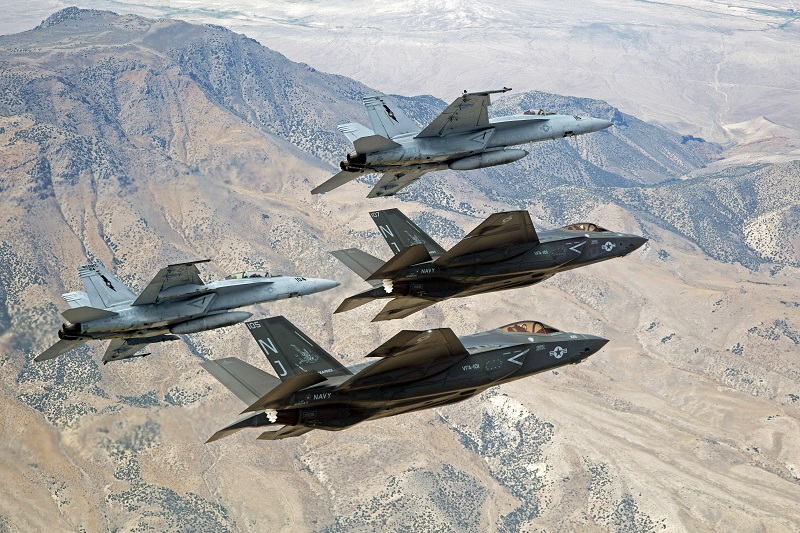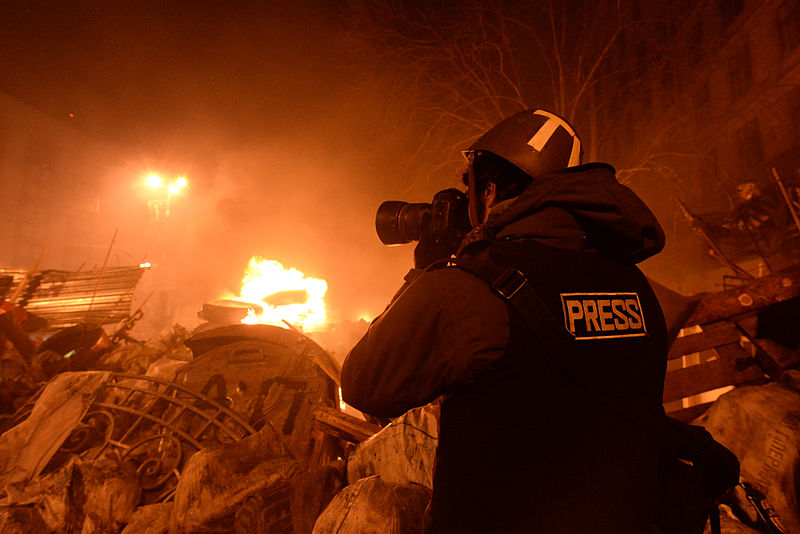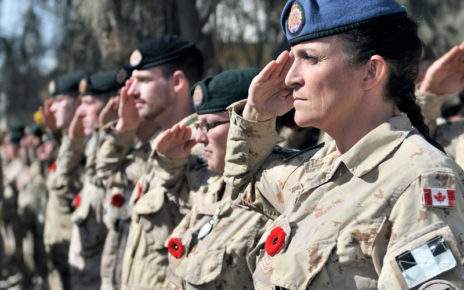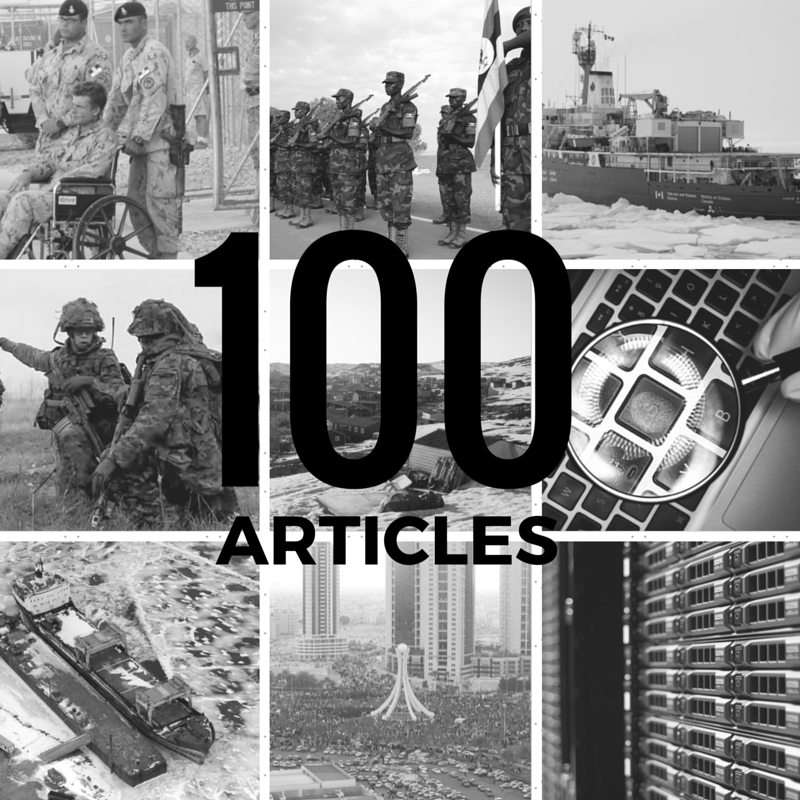An interim Super Hornet fleet for the RCAF could have, would have, and should have been the political slam dunk that the Liberals had aimed for in the last federal election. The Super Hornets were capable, tested, and far cheaper than the infamous F-35. As multirole fighters, they also seamlessly fit the bill for an ambitious and highly-demanding foreign policy. If anything else, the Super Hornet was better performing in every sense than the aging Cold War-era Hornet currently in service.
[perfectpullquote align=”right” cite=”” link=”” color=”” class=”” size=””]“…the Trudeau government has clearly revealed its reckless prioritization of economic performance and industry over national defence and security.”[/perfectpullquote]
Most importantly for the Liberals, buying 18 Super Hornets meant the fulfilment of their election pledge to shun the F-35 – a promise partially meant to spite the Harper government for its failure to procure the F-35 on time and on budget while in power. With a try-before-you-buy approach, an interim Super Hornet fleet could have even paved the way for a full-on Super Hornet fighter force for the RCAF sans F-35s – a victory that the Liberals would take to the grave and one that surely would have hurt the credibility of the Conservatives’ now-dubious pro-military stance for the next federal election.
Yet, the feds not only missed a chance to one-up their rivals, but they have effectively jeopardized the safety of RCAF pilots and the overall effectiveness of the military itself for nothing more than a backseat role in the much-publicized drama between aerospace giants Boeing and Bombardier. With threats to cancel Super Hornet acquisitions in support of the Montreal-based Bombardier Inc. and in opposition to Boeing’s claim that the new Bombardier CSeries passenger jets are subsidized, the Trudeau government has clearly revealed its reckless prioritization of economic performance and industry over national defence and security. Plan B? Buy surplus from Australia and kick the can down the road.
In five years, an RCAF aviator walking down the flight-line may rightfully ask, “why are these planes older than I am?” Produced in the 1980s, legacy F-18s like our CF-188 may well surpass the age of its pilots, thanks in large part to a long-running, inefficient, and politicized defence procurement process that has apparently remained unchanged under the incumbent government. At some point, an entirely new fleet of aircraft will be needed to replace the venerable CF-188. Even with the government’s current plan of acquiring surplus legacy Hornets from Australia and possibly Kuwait, the service lives of Canada’s Hornets can only go so far until most if not all of the airframes are rendered unsafe, fiscally unviable to refurbish, and technologically outdated.
The Liberals needn’t care. In order to cover what Defence Minister Harjit Sajjan called a “capability gap” to fulfil the RCAF’s NATO and NORAD commitments, the federal government scrambled for alternative options and found that the Australian or Kuwaiti option could put the F-35 issue to bed – at least until after the next election – and side-step away from the Super Hornet blunder in order to buy time for a permanent CF-188 replacement.
The Boeing-Bombardier dispute, like the Boeing-Airbus match before it, will take years – years that the RCAF cannot afford and that the aging CF-188s cannot continue flying for without an expensive overhaul. Combined with a now-fluid NAFTA and new revelations that Airbus is buying a majority of Bombardier’s CSeries program, any quick solution is highly unlikely. If the Trudeau government is genuinely serious about holding their ground against Boeing, then any possibility of a Super Hornet acquisition is dead.
This is a hard pill to swallow for the Liberals, who have spent precious political capital in advocating for the acquisition of the Super Hornets. Prime Minister Justin Trudeau had succinctly promised to hold a competition to determine the RCAF’s next multirole fighter during the 2015 federal election, but the process was terminated when it was announced that it would take too long to fill the DND’s capability gap. The government’s sudden decision to buy the Super Hornet was met with controversy by the Conservative opposition and industry competitors. Yet, the Liberals pressed on. Only when the Bombardier dispute escalated did they decide to ditch the Super Hornet for good.
With the Liberals continuing to fund the development of the F-35 program and with the discount associated with this partnership deal, the F-35 may be on a path towards Canadian procurement despite election promises to avoid buying it. Further, with the Super Hornet off the table, the F-35 stands tall against its non-stealth and non-5th generation European competitors. This, of course, stands as a serious predicament to the Liberals: to break yet another election promise or to push through with the politically-charged F-35.
The real winner of the Liberal feud with Boeing is Lockheed Martin, whose F-35 stealth fighter was once a frequent target of opposition parties and a political headache for the former Conservative government that tried to acquire them. Years have since passed and, despite Prime Minister Justin Trudeau’s claim last year that the F-35 “does not work and is far from working”, the 5th generation fighter is now already in service with the US Air Force and has recently been deployed in the Korean Peninsula amid growing tensions in the region.
When an RCAF pilot is directed to intercept another Russian bomber patrol, attack another ISIL position, or perhaps slip into North Korean air defences, he or she deserves the best. The best does not mean an aircraft that has outlived its originally-designed lifespan. The best does not mean the aircraft with the most resale value. The best certainly does not mean the aircraft that creates the most business and profit for those who wouldn’t dare fly them over hostile territory. The Canadian Super Hornet, aborted before it ever flew, stands out not only as a missed political opportunity, but as an embodiment of an over-politicized and futile defence procurement process.
Photo: F-35C Lightning IIs, attached to the Grim Reapers of Strike Fighter Squadron VFA-101, and F/A-18E/F Super Hornets attached to the Naval Aviation Warfighter Development Center (NAWDC) fly over Naval Air Station Fallon’s (NASF) Range Training Complex on Sept. 3, 2015. US Navy photo.
Disclaimer: Any views or opinions expressed in articles are solely those of the authors and do not necessarily represent the views of the NATO Association of Canada.




